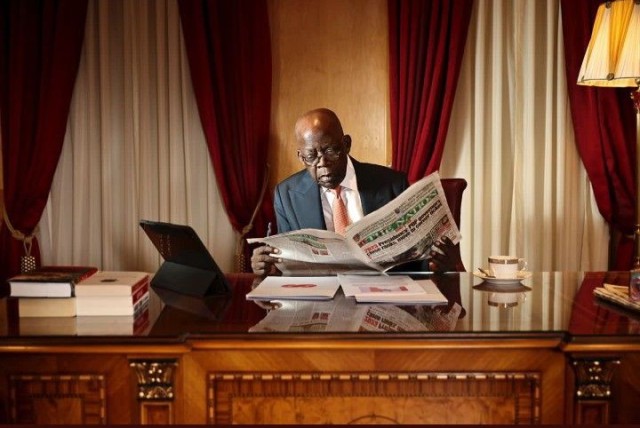This article seeks to examine the possible implications of Bola Ahmed Tinubu’s emergence as President of Nigeria on the real estate sector and its stakeholders.
The emergence of Bola Ahmed Tinubu as President although unsurprising to most has been deemed by many entrepreneurs, business owners and business-minded citizens as a welcome development which will help fast-track the recovery of the Nigerian economy.
Nigeria, despite being one of the largest oil-producing countries in the world, has 40% of its citizens (83 million people) still living below the poverty line, while another 25% (53 million) are vulnerable.
In addition to an external debt standing at $32.86 billion as reported by the Debt Management Office.
Nigeria has also been experiencing high inflation rates in recent years. In August 2021, the inflation rate was 17.38%, the highest in four years.
With a fast-rising high unemployment rate of 33.3% as reported by the National Bureau of Statistics.
The reason for this belief is predicated on the tested and proven track record of President-elect Bola Ahmed Tinubu with a spotlight on his time as Governor of Lagos state, where his contributions helped solidify its position as the economic capital of the country and also ranking amongst the fourth wealthiest city on the African continent.
As the governor of Lagos State from 1999 to 2007, Bola Ahmed Tinubu implemented several economic policies that contributed to the growth and development of the state. Some of his notable economic achievements include:
•Tax Reforms: Tinubu implemented a tax reform program that helped increase the internally generated revenue of Lagos State. The reforms included the introduction of the Personal Income Tax Act, the Hotel Occupancy and Restaurant Consumption Law, and the Land Use Charge Law.
•Infrastructure Development: Tinubu initiated several projects aimed at improving the infrastructure of Lagos State. Some of these projects include the construction of new roads, bridges, and flyovers, and the expansion of the water transportation system.
•Investment Promotion: Tinubu implemented policies to encourage investment in Lagos State. He initiated the development of the Lekki Free Trade Zone, an industrial and commercial hub that is a model for economic development and has attracted significant investment from both local and foreign investors.
He established the Lagos State Investment Promotion Agency (LASIPA) to promote investment in the state, and also provided incentives to investors such as tax breaks and land allocations.
•Poverty Alleviation: Tinubu implemented programs aimed at reducing poverty in Lagos State. He established the Lagos State Poverty Alleviation Program (LASPAP), which provided micro-credit loans, vocational training, and other support services to low-income residents.
•Education: Tinubu implemented policies aimed at improving the quality of education in Lagos State. He established the Lagos State University (LASU), and also introduced the Eko Project, which aimed at improving the infrastructure and quality of primary and secondary schools in the state.
•Health: Tinubu implemented several health policies aimed at improving the healthcare system in Lagos State. He established the Lagos State University Teaching Hospital (LASUTH), and also provided free healthcare services to children under the age of five and pregnant women.
Tinubu’s economic policies helped transform Lagos State into one of the fastest-growing economies in Africa during his tenure as governor.
Bola Ahmed Tinubu’s policies and initiatives as outlined in his manifesto if effectively implemented will have a positive impact on the Nigerian real estate sector.
RealEstateMoses Blog
For example, he might prioritize infrastructural development and housing projects to improve the availability and affordability of housing for Nigerians. This could potentially create new opportunities for real estate developers, builders, and investors, as well as increase demand for related services such as architecture, engineering, and construction.
Additionally, if Tinubu’s presidency were to lead to greater political stability and economic growth in Nigeria, this could have a positive effect on the real estate sector. A stable political environment and a growing economy could lead to increased investment in the sector, as well as higher demand for commercial and residential properties.
However, it is important to note that these are all potential outcomes and that the impact of a Tinubu presidency on the real estate sector would depend on a variety of factors, including his specific policies and initiatives, as well as broader economic and social trends in Nigeria.
In conclusion, members of the business community in Nigeria, especially the stakeholders in the real estate sector are curious to see how his policies and initiatives towards economic growth, infrastructure, foreign investment and ease of doing business will unfold and most importantly be implemented. As government policy is one of the major factors that drive the economy and the real estate sector.
Moses Oyong is a luxury real estate advisor with a passion for arts and culture, music, fashion, and all things luxurious. With a keen eye for beauty and attention to detail. I strive to help my clients find their dream homes that reflect their unique sense of style and taste whilst providing them with the right information to ease the stress of the decision-making process.





Let hope so